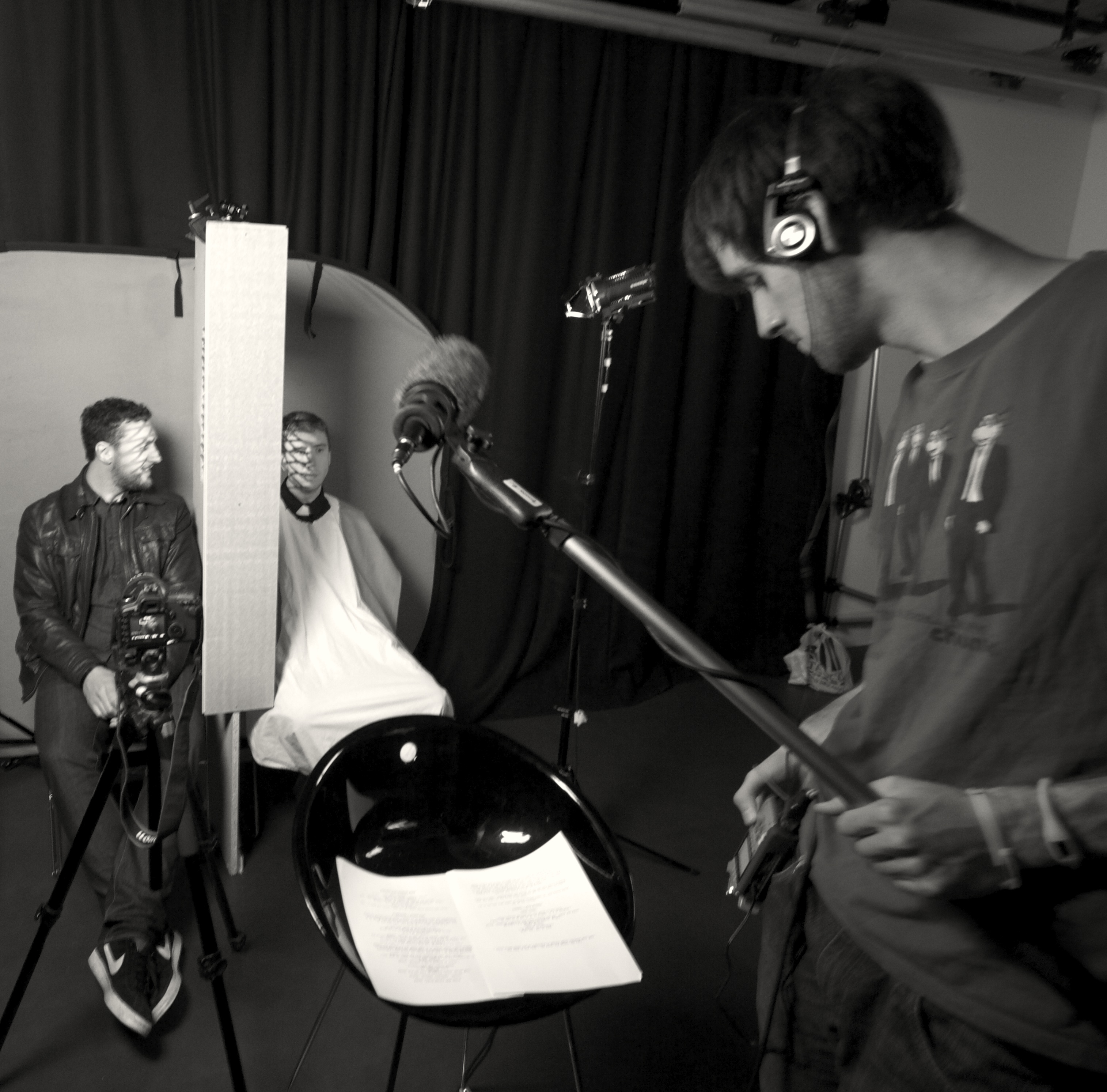ASK & DISCUSS
INDEXWhat (non-production) software are you using?
11 years, 8 months ago - Jesse Thompson
I'm interested to know what software you're using to organise your work in any phase of a production, except for the obvious on-set and post stuff, e.g. tools to help you budget and write, not grade and record sound.
What do you use to manage your production, to cast, to track the post process, to collaborate on teleplays, etc? Are there areas where you feel that the software is not quite up to it? Are you looking forward to more cross-process homogenisation by someone like Adobe (who's starting to build an ecosystem)? Anything along these lines is of interest! Cheers
Only members can post or respond to topics. LOGIN
Not a member of SP? JOIN or FIND OUT MORE
11 years, 8 months ago - Marlom Tander
I'm actually building an online solution for all that messy collaboration / team management stuff. The stuff that ends up with vast email threads and long conversations to keep everyone on track while wondering whyn there isn't a better way. Drop me a line if you want to play with it. I'd appreciate some feedback, but I'm not yet ready to let the url lose in the world.
11 years, 8 months ago - Marlom Tander
FWIW I notice that they are using a Mind Map to illustrate the topic. God I hate Mind Maps :-)
11 years, 8 months ago - Paddy Robinson-Griffin
Celtx is actually pretty decent if you keep everyone within their workflow. The price is certainly attractive (for anyone who doesn't know it, there's a free version) and it offers a lot, but not all you need. The problem is that it provides good, but not best of breed tools to do screenwriting, breakdowns and rough budgeting. Many writers prefer final draft, producers like their own formats, and the production budget is more than the sum of the parts (so you need another system anyway).
On a more technical note, the Celtx programming model defines things through styles, not metadata, which is a shame. It makes great guesses for the breakdowns and props lists etc., but it's not a rugged system. I tried it a couple of times but kept getting wary that it would miss/decouple something, so ended up feeling more confident doing it out of the tool in the end.
If you're writing in celtx (imports are harder work than they need to be), it may be worth a go. Start with a short maybe and see how comfortable it is for breakdowns, storyboarding etc.
BTW as a confirmed Avid fan, this week I didn't have my dongle and so needed to find alternatives urgently. I'd had a play with light works 10 a few days after it was open sourced and didn't really get on with it. Just tried v11.5 and it's amazing. Things are a little different, but it is extremely fast and responsive and tolerent. It's only 80MB or so and where my Media Composer is still on its splash screen I'm in and working with Lightworks. OK, it's not a fair comparison in most respects, the Avid has some features Lightworks doesn't and I'm more familiar with the workflow, but reading the Lightworks manual and cheat sheets it has some great concepts and metaphors. Free download, cross platform, incredible value for money.
11 years, 8 months ago - Jesse Thompson
I am in fact using Celtx for writing just now (a serial), and have been intrigued by their new releases. It's nice to get new features, but of course it's a SaaS model, so that's just part of the deal. We're still in dev, but I'm considering whether or not to give the productions tools in Celtx a go - I do like collaborative tools a lot more than emailing spreadsheets, but I'm always (as you mentioned) wary of strictly cloud-based apps.
I just see so much fragmentation in every stage of the process and I often bemoan the lack of integration and homogeny among the tools.
11 years, 8 months ago - Paddy Robinson-Griffin
Whilst Dropbox is handy for that distributed stuff, there's a new player on the block copy.com. You get 15GB free space, and if you use this referral link we both get an extra 5GB https://copy.com?r=kkz9wr free. And another plus, when a folder is shared, it doesn't count multiple times against your allowance, unlike some sync/share services.
You can set up a small business account (for free) once your personal account is set up, and that provides teamworking for upto 5 people (and unlimited public read-only shares). It's great for when you have riggers, designers, writers uploading 'stuff' to a central repository, yet your computer can sync all the latest versions locally. Might be helpful?
11 years, 7 months ago - Paddy Robinson-Griffin
"Microsoft Office is also a resource hog and full of bugs."
MSOffice is bigger than some more lightweight office suites, however it's more fully featured and doesn't require the Java runtimes (which are frankly a bigger filesize and security risk when all is factored). It's also pretty solid, it's actually rare to hit a bona fide bug in Office.
The free Office suites are excellent for the price, however MSO is still the de facto standard which is why I come back to it time and time again.
11 years, 8 months ago - Paddy Robinson-Griffin
Gah! I'm out in Sharjah at the moment and the internet connection is flaky, just lost a big, good, long answer!
The essence of it was that on the ground every job is so different that unless 'one to rule them all' system is more flexible than, easier than, and saves work over Excel, Excel will win out. Besides Excel, sometimes MS Publisher (for merging excel sheets into graphics for security photo laminates, payslips, meal tickets, etc), MS Project (actually one of the better planning tools if you know how to use it, if not, save your money), and AutoCad (or a free clone) for site/construction stuff. Online tools have the problem that...well see my first paragraph, offline has strong advantages.
But each job is different enough from every other job that even when I've built my own 'one to rule them all' tools, I've had to bin them by the next job.
11 years, 7 months ago - Jesse Thompson
Jonathan, are you working on this app yourself? Otherwise, how have you come across it? (I'm interested in 'the buzz' of apps in our industry.)
11 years, 7 months ago - Jonathon Bowers
There is a very good app called PrePro that is excellent for pre-production. It is also now a website, with the same feature, that is on the app, coming soon on! www.preproapp.com
11 years, 8 months ago - Vasco de Sousa
I don't use software to cast, I use auditions for that. That said, if you're looking at office software, either OpenOffice, Libre Office, Softmaker FreeOffice, Microsoft Office, Corel Office or any competitor can do the job.
But, if you want something to collaborate with, or to share things quickly, there are online solutions, like Zoho Docs, Google Sheets, and the Microsoft one. I find that Zoho and Google outshine Microsoft in functionality for the online versions, Microsoft online isn't easy to collaborate with, and I love the autosave function. Microsoft Office is also a resource hog and full of bugs.
That said, you can usually import from one software package to another.
As far as stuff made for the industry, well, I use some screenwriting programs sometimes, but they have their limitations. It's called "Final Draft" for a reason (it's not flexible enough for earlier drafts.)
For budgeting I tried Gorilla and Chimpanzee, but they aren't flexible enough, you can't even resize windows properly. (So, I just use databases.) I find that databases are the most annoying thing, as it's hard to import material from one database to another. You pretty much have to start over again if you're working with someone who uses a different kind of database.
Spreadsheets may need a few formulas rewritten on occasion, and Word processors might have a few formatting quirks, but generally they can be easily interchanged.
So, whatever's available, use it.
Also, love Blender and Maya and Poser and Daz3D and all that stuff to toy around visually, but it's really not needed for most of what I do. I'd rather take a camera and look at real life, and not be around a computer any more than I have to.
In any case, most of the best software these days is Open Source. Not all, but most of it.
11 years, 8 months ago - Jesse Thompson
So no one's using something like Celtx or Adobe Creative Cloud? Not too much made specifically for the industry?
11 years, 8 months ago - Jesse Thompson
Good start, guys! On the cloud thing, I'd say that it's a bit like personal online storage in the 90's - it's getting so that you can get gigs of storage all over the place, to the point where a few gigs can be had quite easily. Having a massive repo will still require shelling out a bit.
Marlom, I'd be interested to hear more about your tool...
11 years, 8 months ago - Max Green
Without wanting to go on and on, I'll be brief. Dropbox hooks my life together, but I find Wunderlist and Evernote to be good ways to collaborate. Plus they're free services, so the whole cast and crew can get accounts for free.
Plus Highland and the excellent Fountain markup have saved me so much time, pair them with Google docs and you have a free collaborative screenwriting platform.
I'm currently researching distributed production at Ravensbourne, if anyone wants to chat more send me a message.
11 years, 7 months ago - Tracy Strain
We use teamwork.com to organize our documentary projects after switching from Basecamp which didn't have enough features for us. Through our Google Biz Accounts we use Google Drive/Doc to collaborate of drafts of various things including treatments, research documents, fact checking reports, scripts, proposal drafts-in-progress, and we use Dropbox for Biz to share photos, videos, final drafts of proposals, correspondence, etc. We used to only use the free versions, but it was too complicated at the end of projects to maintain access and control of materials that were produced by collaborators. We use free TripIt accounts to organize our travel including shoots. We like all these applications because they synch with the same apps on our phones and tablets.
11 years, 8 months ago - Marlom Tander
Paddy - agreed. I'm not touching the technical area, but looking at all the preliminary stuff - essentially resource identification, discussion and costing, for distributed teams. The stuff that you do in order to work out the WHO, the WHAT and the WHERE. Once you KNOW the who, what, where etc, then there's a lot of solutions for various parts of the puzzle.
And keyword - distributed. Every project I'm involved with seems to include people from all over the place, and making sure that everyone is up to speed is an issue.




